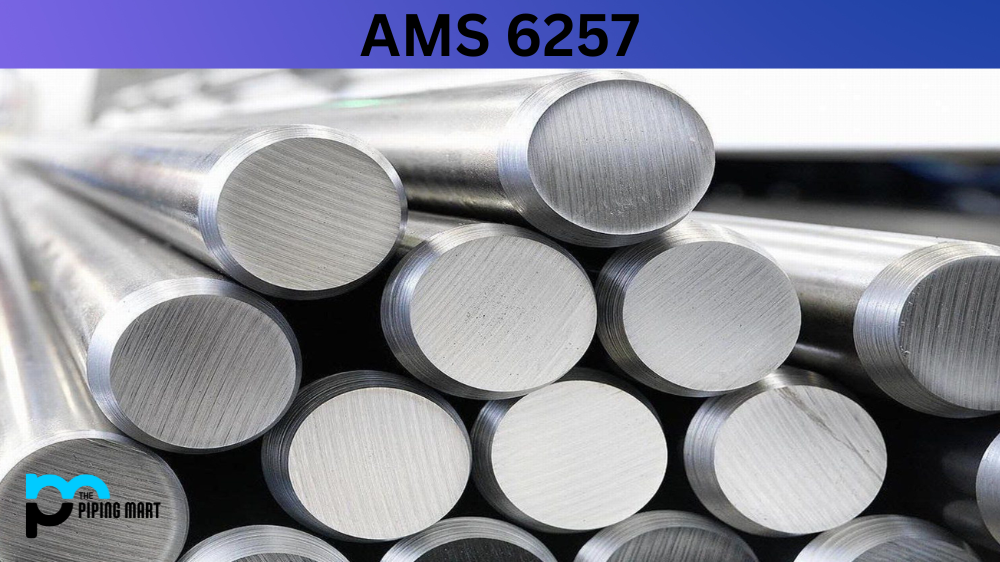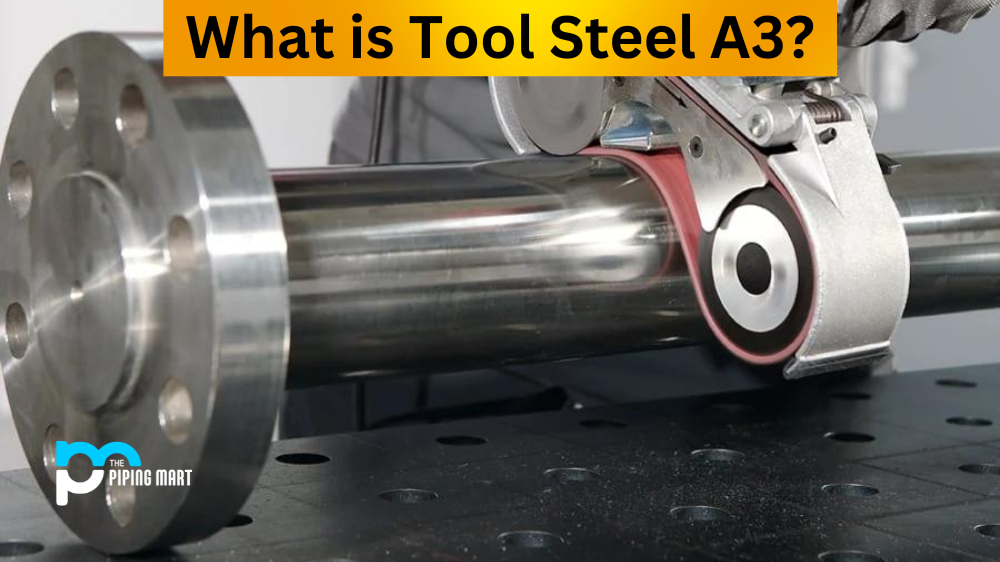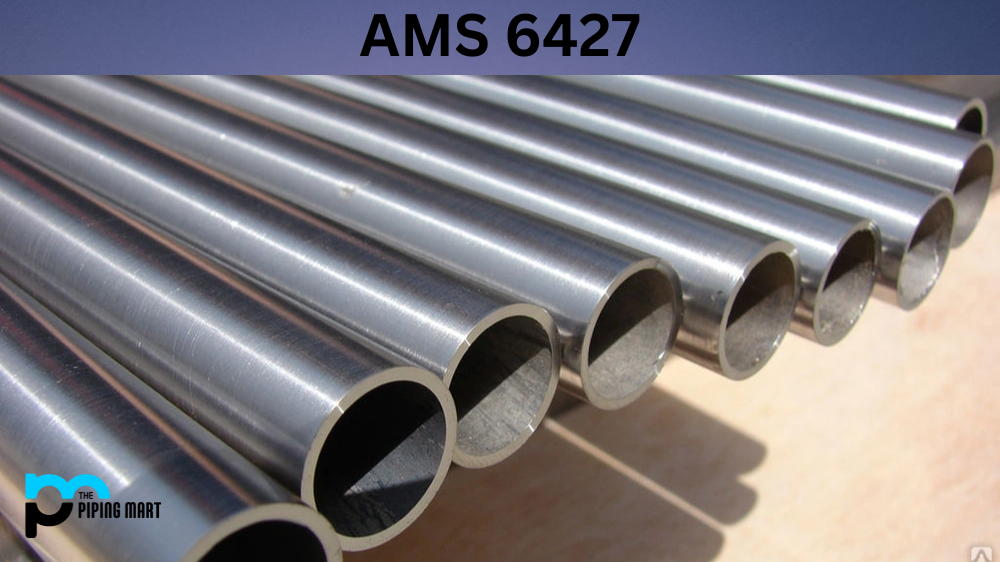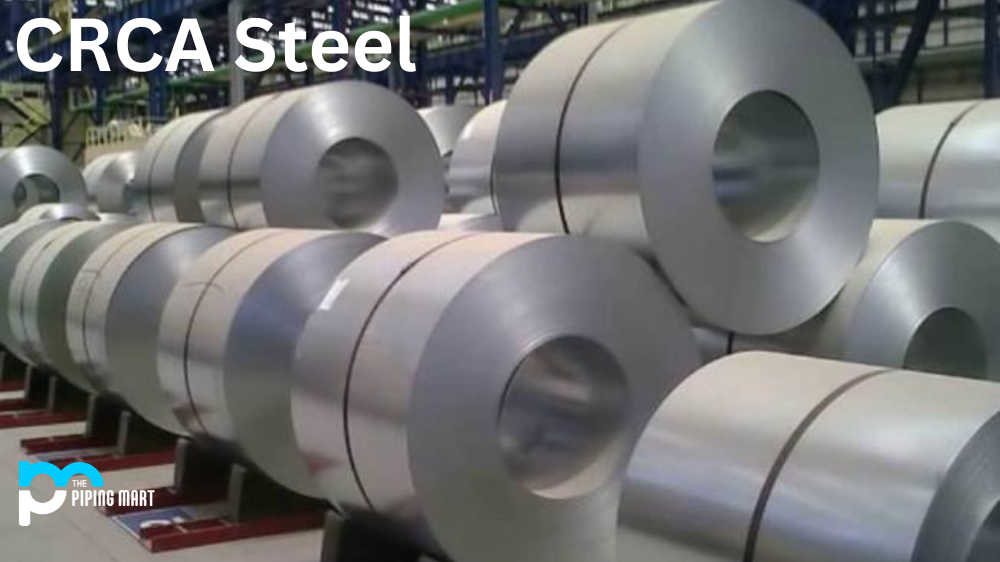If you’re looking for a low alloy steel that will offer excellent strength and wear resistance, AMS 6257 might be a perfect choice. This material is popular for industrial applications, including automotive construction, aerospace engineering, and heavy-duty machinery production. But what exactly is AMS 6257, and what properties make it stand out from other steels on the market? This article will deeply dive into this incredible material, exploring its composition, physical and mechanical properties, uses, hardness, and heat treatment.
What is AMS 6257?
AMS 6257 (also known as Alloy Steel 4340) is a high-strength, low-alloy steel primarily used in the aerospace and defence industries. This metal is known for its exceptional toughness and durability, making it ideal for structural applications where strength is paramount. AMS 6257 is often used in engine parts, landing gear, and other critical components where failure is not an option. Despite its impressive strength, this metal is still relatively lightweight, making it a popular choice for aircraft and other vehicles requiring strength and speed. With its exceptional properties and diverse range of applications, AMS 6257 is quickly becoming one of the most sought-after metals in the industry.
What Form is AMS 6257 Available at Piping Mart?
- Bars
AMS 6257 Composition
AMS 6257 is a low-carbon, low-alloy steel with molybdenum, chromium, and silicon among its major alloying elements. The exact formula may vary slightly by manufacturer, but most versions will have a chemical composition that falls within the ranges of 0.12-0.18% carbon, 0.1-0.4% manganese, 0.2-0.4% silicon, 0.4-0.7% chromium, and 0.2-0.3% molybdenum. These elements create steel with excellent hardenability, toughness, and resistance to wear, corrosion, and fatigue.
| Element | Content (%) |
|---|---|
| Iron, Fe | 93.4 – 94.8 |
| Nickel, Ni | 1.65 – 2.0 |
| Silicon, Si | 1.45 – 1.80 |
| Chromium, Cr | 0.70 – 0.95 |
| Manganese, Mn | 0.65 – 0.90 |
| Carbon, C | 0.40 – 0.460 |
| Phosphorous, P | 0.035 |
| Molybdenum, Mo | 0.30 – 0.45 |
| Vanadium, V | 0.050 |
| Sulfur, S | 0.040 |
AMS 6257 Physical Properties
AMS 6257 has a density of 7.85 g/cm3 at room temperature, similar to most other types of steel. It has a melting point of approximately 1425-1530°C (2597-2786°F). The thermal expansion coefficient of AMS 6257 is 11.5 μm/m·K, which means it will expand or contract by that amount with a one-degree temperature change. The specific heat capacity of AMS 6257 is around 460 J/kg·K, meaning it requires 460 joules of energy to raise the temperature of one kilogram of the material by one degree Celsius.
| Properties | Metric | Imperial |
|---|---|---|
| Density | 7.87 g/cm3 | 0.284 lb/in³ |
| Melting point | 1422°C | 2590°F |
AMS 6257 Mechanical Properties
AMS 6257 exhibits outstanding mechanical properties and is known for its high strength, toughness, and resilience. It has a yield strength of 620 MPa (90 ksi) and an ultimate tensile strength of 760 MPa (110 ksi). The elongation percentage is 13%, and its impact strength of 89 J (66 ft-lbs) for Charpy V-notch specimens is impressive. These mechanical properties make AMS 6257 ideal for applications requiring components that can withstand heavy loads and high-stress environments.
| Properties | Metric | Imperial |
|---|---|---|
| Shear modulus (typical for steel) | 80 GPa | 11600 ksi |
| Elastic modulus | 205 GPa | 29700 ksi |
| Poisson’s ratio | 0.28 | 0.28 |
AMS 6257 Equivalent
- AMS 6417
- AMS 6419
- ASTM A579 (32)
- ASTM A646 (300M-8)
- MIL S-8844 (3)
- MIL S-8844 Class 2
AMS 6257 Uses
AMS 6257 material is a popular choice for various industrial applications due to its exceptional properties. Its high strength and wears resistance make it ideal for automotive construction, aerospace engineering, and heavy machinery production. It is also often used in manufacturing high-performance springs, valve and pump components, and shafts for manufacturing machines.
AMS 6257 Hardness
AMS 6257, when heat-treated, will typically have a Rockwell hardness of 20-30 HRC. Higher hardness levels can be achieved with specialized heat treatment. As an alloy, AMS 6257 offers good machinability and can be easily hardened and tempered, which makes it widely used.
AMS 6257 Heat treatment
AMS 6257 bars is a low alloy steel that is easily heat-treated when it needs to be hardened. It is popular to use salt baths or oil quench to reach the desired hardness level. Quenching and tempering are common heat-treatment techniques for treating AMS 6257, as they can elevate hardness and bring out the steel’s high strength and formability.
Conclusion:
AMS 6257 material is a popular low alloy steel due to its excellent mechanical and physical properties. Its exceptional strength, high wear resistance, toughness, and resilience make it suitable for various industrial applications, including automotive construction, aerospace engineering, and heavy machinery production. AMS 6257 also offers excellent machining properties, and it is easily heat-treated to improve hardness and achieve desired specifications. When looking for low alloy steel that combines strength, toughness, and wears resistance, AMS 6257 is undoubtedly a top choice worth considering.

Pipingmart is a B2B portal that specializes in metal, industrial and piping items. Additionally, we share the latest information and information about materials, products and various types of grades to assist businesses that are involved in this business.




